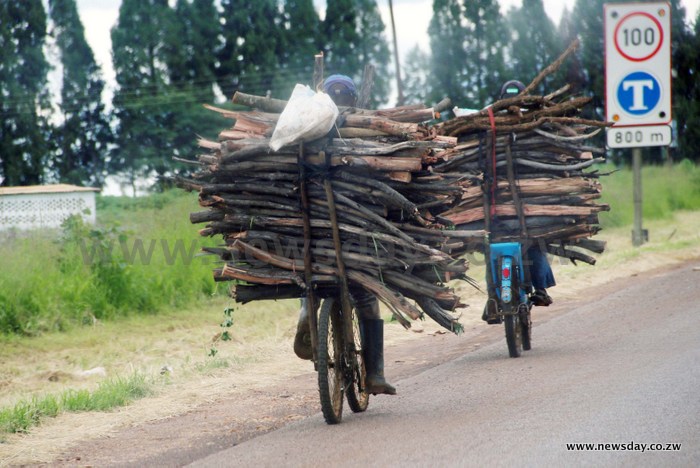
IT is imperative that Africa shifts from a poverty reduction mindset (move away from development aid) to a job creation mindset, to accelerate its industrialisation.
We have been celebrating African Liberation Day for more than half-a-century without concrete achievements towards our own liberation. African leaders must understand that “time for business as usual” is over.
It has become critical to match the continent’s growing population with youth employment. Africa has seen the highest rate of population growth. This growth has been about 2,5% annually over the last five years and by 2050, a quarter of the world’s population will be on the continent.
Africa’s population is projected to have over 840 million youth by 2050 and will be the continent with the youngest population on earth, based on data from the United Nations Population Division (World Population Prospects: the 2015 Revision).
The main challenge is how to respond to the growing bulge of the African working-age population or tap into that growing working population.
According to the International Monetary Fund (IMF) projection from 2010-20, only three million formal jobs are created each year for 10 to 12 million youth entering the job market across the continent, a situation corroborated with data from the International Labour Organisation, showing that over the last 25 years, young people’s participation in the labour force has improved by, literally, 0%.
The continent’s youth unemployment has become a major security threat and could provide the perfect basis for terrorism, socio-political unrest and threat to democratic institutions. In 2011, a survey conducted by the World Bank revealed that about 40% of those who join rebel movements said they were motivated by a lack of jobs.
The time to act is now the panacea to that alarming situation is inclusive and sustainable industrial development, buttressed by relevant policies such as the Africa Continental Free Trade Area, the Protocol on Free Movement and the Kigali Declaration, among others.- O4Z
- Chamisa under fire over US$120K donation
- Mavhunga puts DeMbare into Chibuku quarterfinals
- Pension funds bet on Cabora Bassa oilfields
- Councils defy govt fire tender directive
Keep Reading
First ladies wield influence THE role played by the wives of heads of State in Africa has been largely ignored.
In a bid to contribute to this under-researched area, we analysed the political role, influence and activities of first ladies in a number of countries on the continent.
We put together the African first ladies database to analyse the functions, roles, strategies and agency of some of Africa’s most influential first ladies.
Our focus was mostly on sub-Saharan Africa.
But our research also covered east and central Africa.
We included first ladies in our database, based on their proximity to the Executive and other decision-makers.
Two emerged as particularly influential. These were Janet Museveni, wife of Uganda’s Yoweri Museveni and Grace Mugabe, wife of Zimbabwe’s late former President Robert Mugabe, among others.
All have been politically ambitious and actively supported their husbands’ rule.
Our paper addressed their political agendas, roles, influence and accountability.
We found that they were influential political actors who were active domestically, regionally and internationally.
This enabled them to influence relationships and to extract political support, as well as financial gain through tenders and government funding.
Our findings raise questions about the accountability of first ladies and the transparency of their public duties and private interests.
But Africa’s first ladies aren’t on their own.
Similar accusations have been made against others, elsewhere.
For example, during the presidential tenure of her husband, Hilary Clinton was often described as interfering with White House politics and Capitol Hill decisions.
Similar accusations were also made against, among others, Imelda Marcos of the Philippines.- Africa in Focus
Ruling with iron fist is not sustainable
ON April 11, 2019, the world watched the downfall of former Sudanese President Omar al-Bashir who, like those before him, lost everything he had built.
People celebrated for days and every statue or image of him was either defaced or pulled down.
This has been happening across the African continent over the last 20 to 30 years.
The late former Zimbabwean President Robert Mugabe, Muammar Gaddafi (Libya), Zine El Abidine Ben Ali (Tunisia) and Hosni Mubarak of Egypt are some of the dictators who were toppled despite their ruthless crushing of dissent.
Initially celebrated as liberators, they later fell prey to pride, greed and power.
In the end, they were hated by their own people and removed from power. This could happen with our own President Emmerson Mnangagwa who, it seems, hasn’t learnt anything from history. I can bet Mnangagwa is going to find himself on the wrong side of history.
He squandered the goodwill that he had post-November 2017 coup.
His administration presided over the killing of civilians on August 1, 2018 and during the 2019 anti-fuel price hike protests.
When one looks across the world stage, countries that are the most respected are those that strive to take the moral high ground.
It’s countries that respect the rule of law, where each member of society has rights that are guaranteed.
There is truth that often goes ignored: Good leadership lasts.
Even King Solomon gave an interesting observation concerning leaders’ security: “When a country is rebellious, it has many rulers, but a ruler with discernment and knowledge maintains order.”
A good leader does not need military force to stay in power as people will always be loyal to him. People desire leaders who value justice and rule by righteousness.
If a leader needs to resort to military force to stay in power, he has already lost his nation and it is only a matter of time before he is toppled.
Mnangagwa is one such leader who relies on the military to stay in power.-Muzokomba villager







